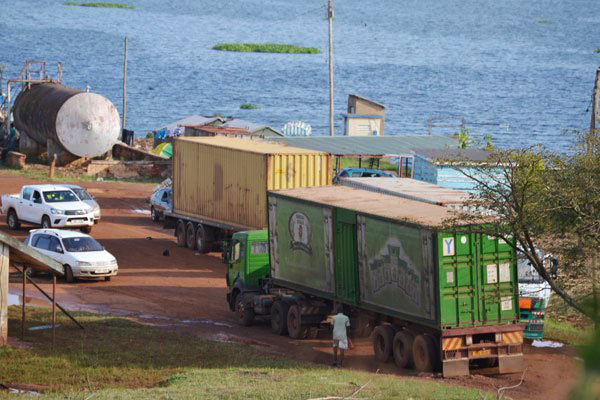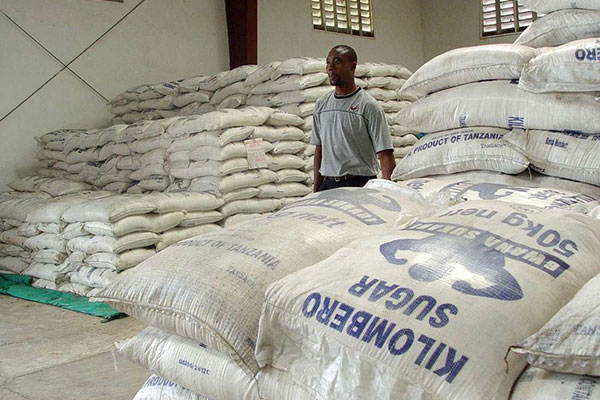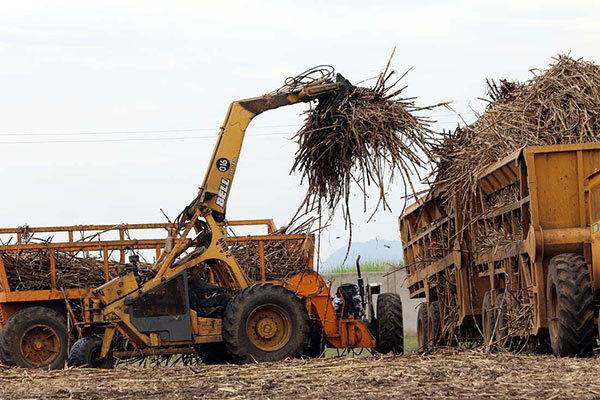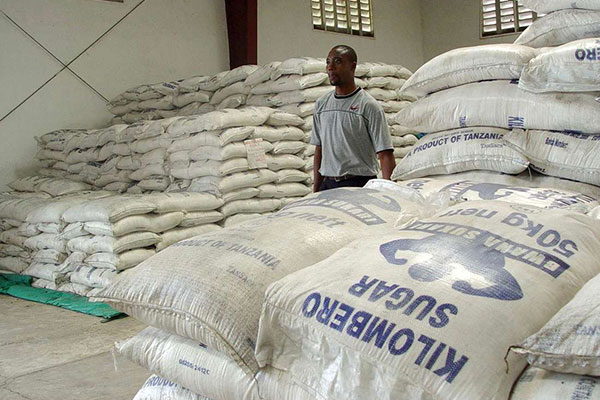
Uganda is looking to create a mutually beneficial relationship with Tanzania in order to increase its exports to the East African Community.
But sugar and edible oil originating from Uganda remain locked out of the Tanzanian market more than six months after a ministerial meeting held at the Mutukula border agreed to allow free movement of these products between the two countries.
This is one of the issues that will be up for discussion at a Tanzania-Uganda business forum to be launched in Dar es Salaam by Presidents Yoweri Museveni and John Pombe Magufuli on September 4.
Currently, Uganda exports over $60 million worth of goods to Tanzania, making its southerly neighbour one of the smaller export destinations for Ugandan goods.
But Uganda’s High Commissioner to Tanzania Richard Kaboneero, hopes that this state of affairs will change once the two countries realise that working together is mutually beneficial for trade and investment.
Mr Kaboneero said that he is looking to foster this mutually beneficial relationship through the business forum that will be preceded by a joint permanent commission between Uganda and Tanzania.
The 25 per cent tariff that Tanzania continues to charge on sugar and edible oil from Uganda is among issues up for discussion at the September meeting.

For much of last year, sugar and edible oil extracted from sunflower had been stopped from entering the Tanzanian market, over allegations that these products were imported into Uganda, repackaged and then re-exported to markets in the EAC.
A visit by Tanzanian officials to Ugandan factories producing sugar and edible oils found that Kampala was not importing and then re-exporting these products to its East African neighbours.
A bilateral meeting between Ministers of Trade Amelia Kyambadde of Uganda and Joseph Kakunda of Tanzania was then held during which they agreed to remove tariff and non-tariff barriers on edible oil and sugar.
The ministers then signed a deal to issue import permits for sugar and edible oil.

Business forum
But it is yet to be implemented, with some Ugandan officials who participated in the negotiations suggesting they are helpless, as they do not know what else to do to get Tanzania to fulfil its promises.
“When someone says they will do something and they do not deliver, what do you do?” the Commissioner for External Trade in Uganda Emmanuel Mutahunga asked.
But Mr Kaboneero said he has a solution.
Working with his counterpart from Tanzania, Mr Kaboneero said they had come up with a private sector-led business forum that will focus on investment and sustainable development.
This is the forum taking place on September 4-5.
Mr Kaboneero said that leaders from Uganda and Tanzania will resolve issues like the ones facing sugar and edible oil business in the EAC during the meeting.
He said that since the negotiations over the two products have already been concluded, Presidents Museveni and Magufuli should ensure that the January agreement is effected.
Also up for discussion during the September meeting is how Tanzania benefits from a partnership with Uganda.
According to the Tanzania’s High Commissioner to Uganda Aziz Ponary Mlima, his country expects that soon, Kampala’s use of the Central Corridor will increase as a result of this partnership.
He said that Tanzania has already reduced the number of roadblocks in its territory from 21 to three, which should translate into lesser time spent on moving cargo. He added that the charges for clearing goods at the Dar es Salaam port have also been reduced.
“Businesses using the Central Corridor up to Kampala could save up to 40 per cent in costs compared with those using the Northern Corridor,” said Mr Mlima.
He added that Uganda’s insistence that the cost of clearing goods through Dar es Salaam is higher stems from the fact that Tanzania itemises its charges, unlike at the Mombasa port where charges have been consolidated into one.
This claim was, however, difficult to confirm, as several clearing and forwarding agents that www.msnewsint.com spoke to said they still prefer using the Northern Corridor route.
A document from Uganda’s Ministry of Trade, Industry and Co-operatives however shows that it costs a clearing agent $1,570 to operate at Mombasa port, while at Dar es Salaam port the cost is higher at $2,900.
But Mr Mlima said that Ugandans using the Central Corridor will see reduced costs, especially following ongoing investments in transport on Lake Victoria.
Uganda and Tanzania are currently investing in cargo wagons that will be transported through Lake Victoria, which is expected to reduce the time cargo spends on Lake Victoria.
At the moment it takes 17 hours for cargo transiting through Mwanza port to reach Port Bell on the Ugandan side.






